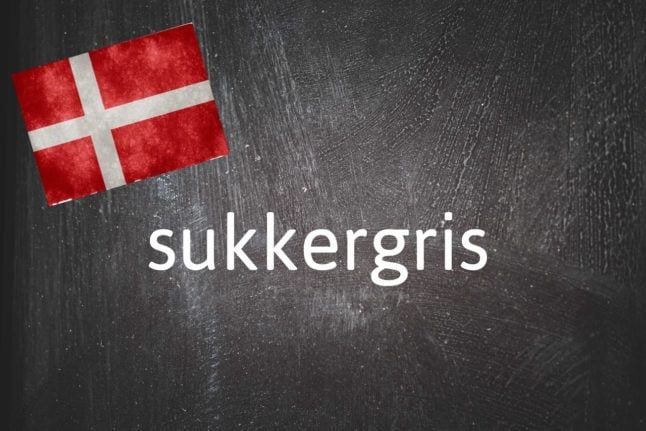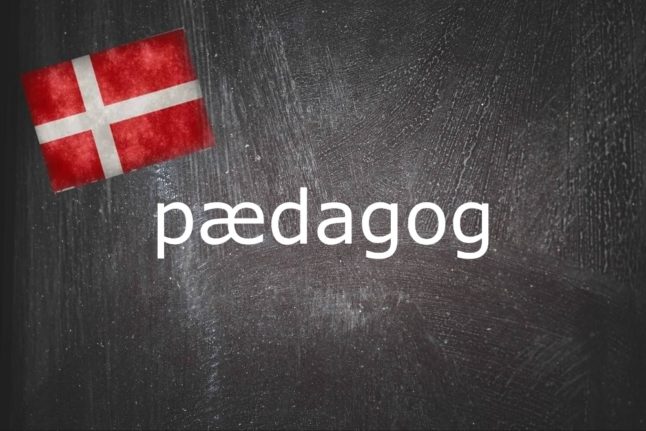What is sukkergris?
From sukker (“sugar”) and gris (“gris”) a “sugar-pig” is not a real pig, but can be a pig made out of sugar.
This can mean a confectionary product formed from either marzipan or boiled sugar into the shape of a pig. The former version, using marzipan, is also referred to as a marcipangris as well as a julegris (“Christmas pig”). This is because a marzipan-shaped pig is a traditional Christmas treat for children, and is often given as the prize to whoever finds the whole almond in the classic ris a la mande festive dessert.
Sukkergris can also have a more figurative meaning, akin to “sweet tooth” in English: a person with a particular fondness for cakes, sweets, candy, or any other sweet tasting, sugary products.
We’re unsure of the origins of this second meaning: did the edible “sugar pig” come first, and the adjective version come about as a description of people who like to eat them? Or does the use of “pig” in relation to a liking for sugar reflect the pig’s bad reputation as a greedy animal?
If you know the answer to the above, let me know.
Why do I need to know sukkergris?
Without wanting to get too far into the realms of generalisation, Danes are mostly health-conscious but they do have a weak spot for cakes (don’t we all?). Cakes play an important role in birthdays as well as other occasions.
It’s common to have a cake at birthday parties, but Danes go a step further by actually taking a cake with them to work (and sometimes school) on their birthdays, to share with colleagues or classmates. In other words, if it’s your birthday, you’ll be expected to bring a cake into work. If it’s not practical to bring a cake or you don’t want to, sweets, candies or flødeboller (small marshmallow treats coated in chocolate on biscuit or marzipan bases) will also be well received.
Unlike neighbouring Sweden, Denmark does not have the practice of fika, a daily short break from work during which coffee and cake are consumed. But cakes still make very regular appearances at workplaces.
As such, you probably won’t be judged too harshly for being a sukkergris or a sweet tooth in Denmark.
READ ALSO: IN NUMBERS: How much do Danes use bicycles?
Examples
Danskerne spiser statistisk set flere kager end folk i Norge og Sverige og er dermed Skandinaviens største sukkergrise.
Statistically, Danes eat more cakes than people in Norway and Sweden and are therefore the biggest sweet tooths in Scandinavia.
Jeg spiser generelt sundt og går meget op i min løbetræning, men jeg er en værre sukkergris. Jeg kan simpelthen ikke sige nej til is.
I eat healthily in general and am very focused on my running, but I’m a terrible sweet tooth. I simply can’t say no to ice cream.



 Please whitelist us to continue reading.
Please whitelist us to continue reading.
Member comments